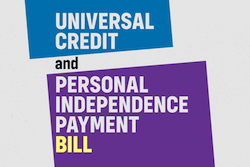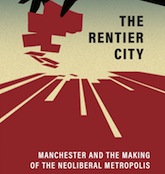After a week of parliamentary rebellion and government chaos, ERNIE JACQUES assesses the outcome and impact of Labour’s ‘crazy’ welfare proposals.
The government’s recent welfare reform bill (Universal Credit and Personal Independent Payment Bill) generated considerable discussion and not a little parliamentary disarray for the Labour leadership. The bill sought to reduce benefit payments to disabled people and sick workers, with the aim of saving £5 billion a year. But it faced significant opposition from within the Parliamentary Labour Party and among disabled people, charities and the broader British public.
 The government argues that reform is essential to prevent welfare costs spiralling out of control and says the bill maintains a safety net for vulnerable people and those most in need. Many Labour MPs, and perhaps a majority of British people, support the government, believing the current situation is unsustainable and that some claimants are ‘gaming the system’.
The government argues that reform is essential to prevent welfare costs spiralling out of control and says the bill maintains a safety net for vulnerable people and those most in need. Many Labour MPs, and perhaps a majority of British people, support the government, believing the current situation is unsustainable and that some claimants are ‘gaming the system’.
A major driver for change is the substantial increase in benefit claims since 2020 and the Covid-19 pandemic. Incapacity benefit has risen by 28% and Personal Independent Payments (PIPs) by 39%, an overall increase of £20 billion. Projections indicate that claimant numbers could increase from 2.8 million today to 4 million by 2030, while the overall welfare bill could reach £75.7 billion.
A new system for claiming benefits was also introduced during the pandemic, replacing face-to-face interviews with Department for Work and Pensions staff and clinicians, with phone and online applications. For DWP staff, it has become more of a tick-box exercise, one that’s less time consuming, but it has been another contributor to the escalating rise in claimants.
According to Prime Minister Keir Starmer, Chancellor Rachel Reeves and Work and Pensions Secretary Liz Kendall, inaction by the government would have had dire consequences. Starmer stated that his government is “not prepared to stand back and do nothing while millions of people, especially young people who have the potential to work and live independent lives, instead become trapped out of work and abandoned by the system.” As such, he claims, the welfare proposals are an economic and moral imperative.
However, many trade unionists, charities and rebel Labour MPs disagree, arguing that the proposals will push low-paid workers and disabled people into poverty, and that it is wrong to make them pay for a budget deficit that is none of their making.
Challenging victory
While the bill narrowly passed its second reading with a majority of 75 votes, it was a challenging victory for Starmer, eliciting the largest rebellion yet since he came to power, with 49 Labour MPs voting against the legislation and 18 abstaining. This was achieved only after weeks of pressure from government whips and significant concessions.
 A last-minute decision, made just 90 minutes before the vote, to abandon plans to restrict eligibility for PIPs – a central component of the reforms – was crucial. Changes to PIPs are now likely to be postponed until after Sir Stephen Timms’ review of the system is complete.
A last-minute decision, made just 90 minutes before the vote, to abandon plans to restrict eligibility for PIPs – a central component of the reforms – was crucial. Changes to PIPs are now likely to be postponed until after Sir Stephen Timms’ review of the system is complete.
This eleventh-hour shift followed an earlier U-turn when more than 130 Labour MPs signed an amendment that would probably have led to government defeat. Opposition was further fuelled by an unpublished impact statement suggesting 250,000 people, including 50,000 disabled individuals, could be pushed into poverty if the bill became law.
A lack of consultation over the cuts and the potential for the bill to lead to a two-tier benefit system, particularly affronted disability groups and charities. Many inside and outside the Labour Party found it illogical to cut welfare benefits before the Timms inquiry. Labour MP Ian Lavery aptly summarised the chaos as he urged the government to drop the bill, telling the Prime Minister: “This is a crazy, man.”
The demolition of the bill presents a considerable challenge for Reeves, as the remaining reforms are projected to save only £2.3 billion a year, less than half the original savings. What’s more, the Institute for Fiscal Studies warns that if the proposals to tighten PIP eligibility are abandoned after the Timms review, the reforms could cost taxpayers £100 million by 2030.
On the face of it, Starmer’s government had reason to act to stop spiralling and unsustainable welfare costs. But that is not the whole story. The reasons why people might ‘game the system’ and the causes of the ballooning welfare budget remain largely unaddressed. The idea that workers need to be saved from ‘economic inactivity’, forced off the dole into work, because it is good for their wellbeing is an old chestnut repeated ad nauseam for decades by politicians of all colours.
Pipe dream
Of course, work can be rewarding, uplifting and a life-changer for some, providing personal fulfilment and a good life. But for many, perhaps most, work is a means to an end. It can be, in varying degrees, tedious, unfulfilling and unrewarding. Try telling someone on zero-hours and minimum-wage contracts, who struggles to make ends meet, who cannot afford a holiday or a home of their own, that work is uplifting and rewarding. Their response is likely to be negative; their language more than a little ripe.
Most people would like to earn at least a living wage and have some disposable income. But increasingly this is not an option. Until the Thatcher years of the 1980s, there were no foodbanks and most families could live on one wage, have disposable income, and aspire to own their own home.
For many now, wages are just too low. Some work all hours under the sun and hold two or even three jobs. Yet they still don’t earn enough to cover their bills. For many, especially younger workers, a real living wage is a pipe dream, so playing the system and living off benefits is preferable to the boredom of a low-waged job.
It is worth noting, too, that the UK’s welfare bill is not overly generous compared to other countries, ranking near the bottom of the 38 OECD nations. In reality, the UK is neither a high-waged nor a high-welfare country. So instead of pontificating about how fulfilling work is, politicians might usefully turn their attention to how to make work pay so that everyone who does a full week’s work receives a proper living wage. They might then find that the number of young people who prefer to live on benefits ceases to be a problem.
During the bill’s passing, government supporters reassured critics that measures would be put into place to train and help disenfranchised PIP claimants find a job. Yet the Access to Work Scheme for disabled people currently has a nine-month waiting time, and there is little or no budget to employ extra Job Centre work coaches. Even if there were, it would take months, possibly years, for the thousands needed to be trained and appointed while the cost would likely wipe out most, if not all, of the Chancellor’s proposed savings.
So when politicians talk blithely about helping disabled people out of poverty via work, but fail to spell out the means, costs and logistics involved in making it happen, it is usually political spin. In the words of Ian Lavery MP: “This is crazy, man.”
—-
Ernie Jacques is a retired mechanical engineer, trade unionist and local government officer who lives in a York. He describes himself as “a long-term supporter of the ILP and a dedicated left-wing socialist”.
See also: ‘Labour in Government: We Need Hope Not Hardline Policies’ by Mary Stratford.
And: ‘Labour in Government: Why We Need a Wealth Tax’ by Chris Wilson.


